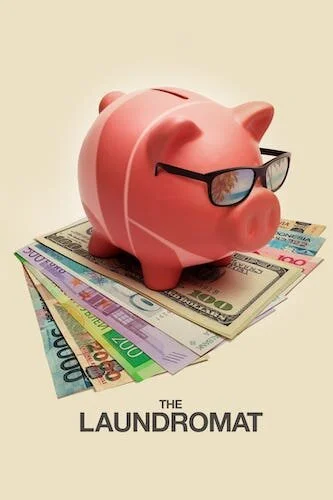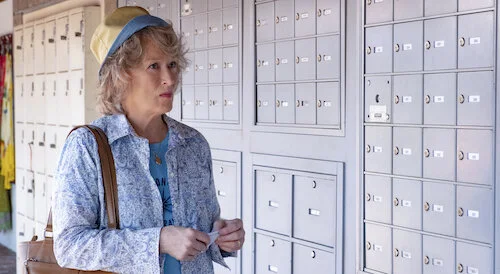The Laundromat
The Laundromat is a highly confusing film. I don’t mean the content. I mean the delivery. Steven Soderbergh has tried his hand at the recent film genre: the dumbed-down-financial-discussion genre. This all started with the untrustworthy, braggadocios biopic The Wolf of Wall Street, where we get told the lies of life straight from the horse’s mouth (or, erm, the wolf). Then, we had the polished version in The Big Short: a twisting of stories that all lead up to the housing market crisis, and the financial recession, of 2008. A number of films have tried to break the fourth wall, create meta environments, and detail difficult economic discussions in a way that anyone can understand since. The Laundromat is one of them, and yet, despite all of the talent on board, neither Soderbergh nor writer Scott Z. Burns knows why The Big Short worked.
The Panama Papers scandal of 2015 dragged some famous names through the mud, but The Laundromat is concerned with putting faces to the whole ordeal: mainly the namesakes of Mossack Fonseca (played by Gary Oldman and Antonio Banderas). They talk to us directly, asking for our sympathy because, hey, America is doing exactly the same type of economic maneuvering. Why should these two lovely souls be penalized? Well, that kind of begging doesn’t work out too well, but we’re not exactly idolizing this duo. The film then becomes a series of tied vignettes that only seem to work even more poorly than the Mossack Fonseca pandering. See, the way The Laundromat lays out its elements is very peculiar. A number of short stories are played out, and they all have relatively the same outcome: the misappropriation of funds for stupid, selfish reasons (like, trying to silence a daughter that caught you having sex with her roommate. That kind of thing). These diversions go on for so long, the speed of the film becomes lethargic. And it’s only an hour and a half. Yikes.
Ellen Martin trying to right the wrongful ways she has been treated, following a tragic accident.
Part of the film follows Ellen Martin: a widow trying to avenge the lack of care behind her husband’s unfortunate passing. Her determination leads her to the discovery of Mossak Fonseca, and her inability to do anything but hope that comeuppance will make its rounds That’s kind of where The Laundromat leaves us, too. We get trapped, and then feel forced to hear these stories that go on longer than they need to, as if they’re timeshare meetings. It’s unfortunate, because everyone is clearly trying their best. Soderbergh’s direction is great outside of the insane pacing issues. Burns’ screenplay is clearly clever, but perhaps too clever for its own good, as it stalls on factoids that The Big Short would have summarized in a jenga puzzle. The entire cast is strong, including the sly and snivelling performances by Oldman and Banderas (let’s not forget Meryl Streep taking on multiple characters, including herself).
The Laundromat means well, but it simply doesn’t do a great job. Part of the thrill of this “genre” is how electrifying the unknown world can be, how informative entertainment is, and the lessons you can now take away, having been strengthened by this awareness. The Laundromat focuses on terminologies we’re already familiar with, the constant lesson that “these are bad people doing shady things”, and us having not really learned much about the Panama Papers revelation, outside of “these are some of the instigators of this whole ordeal”. A film with an important message has to pull it off better than this. This time, a film of this nature actually felt like a lecture.
Andreas Babiolakis has a Masters degree in Film and Photography Preservation and Collections management from Ryerson University, as well as a Bachelors degree in Cinema Studies from York University. His favourite times of year are the Criterion Collection flash sales and the annual Toronto International Film Festival.





